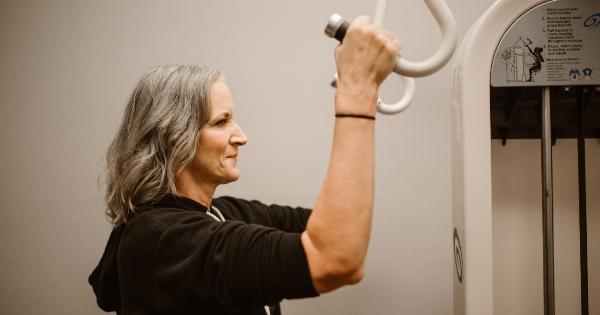Menopause is a natural biological process that marks the end of a woman’s menstrual cycles. Most women experience menopause in their late 40s or early 50s, but some may go through it before the age of 40.
This is known as early or premature menopause and can have significant implications on a woman’s overall health and well-being. In this article, we will discuss what you need to know about menopause before the age of 40.
1. What is Early Menopause?
Early menopause is defined as the onset of menopause before the age of 40. It can occur naturally or as a result of medical interventions such as surgery or chemotherapy.
Early menopause can have various causes, including genetic predisposition, autoimmune conditions, and certain lifestyle factors.
2. Symptoms of Early Menopause
The symptoms of early menopause are similar to those experienced during natural menopause and may include hot flashes, night sweats, irregular periods, mood swings, vaginal dryness, and decreased libido.
However, women who experience early menopause may also face additional challenges such as infertility and a higher risk of certain health conditions.
3. Increased Risk of Osteoporosis
Early menopause is associated with a higher risk of osteoporosis, a condition characterized by reduced bone density and increased vulnerability to fractures.
Estrogen plays a crucial role in bone health, and the decline of estrogen levels during menopause accelerates bone loss. It’s important for women experiencing early menopause to focus on calcium-rich foods, regular exercise, and potentially consider hormone replacement therapy (HRT) to reduce the risk of osteoporosis.
4. Impact on Fertility and Family Planning
One of the significant concerns for women experiencing early menopause is the impact on fertility and family planning. Early menopause often results in a decline in fertility and premature ovarian failure, making it challenging to conceive naturally.
It is essential for women who desire to have children to consult with a fertility specialist and explore options such as assisted reproductive technologies, donor eggs, or adoption.
5. Emotional and Psychological Effects
Coping with menopause, especially at an early age, can have a significant impact on a woman’s emotional and psychological well-being.
Many women experience feelings of grief, loss of femininity, and sadness over the end of their reproductive years. It’s crucial for women to seek support from healthcare professionals, therapists, or support groups to navigate through the emotional aspects of early menopause.
6. Cardiovascular Health
Estrogen plays a protective role in maintaining cardiovascular health, and its decline during menopause, particularly in early menopause, can increase the risk of heart disease.
Women experiencing early menopause should pay attention to heart-healthy lifestyle choices, including regular exercise, a balanced diet, and regular check-ups with their healthcare provider.
7. Hormone Replacement Therapy
Hormone replacement therapy (HRT) is a treatment option that may be considered for women experiencing early menopause.
HRT involves taking estrogen and progesterone (or estrogen alone) to alleviate menopause symptoms and reduce the risk of certain health conditions, such as osteoporosis. However, it is important to discuss the potential risks and benefits of HRT with a healthcare provider, as it may not be suitable for everyone.
8. Long-Term Health Considerations
Early menopause is associated with an increased risk of several health conditions, including osteoporosis, heart disease, cognitive decline, and certain types of cancer.
Regular health check-ups, screenings, and lifestyle modifications can help minimize these risks and ensure proactive management of potential health issues.
9. Support and Resources
Dealing with early menopause can be challenging, both physically and emotionally. It’s important for women to seek support from healthcare providers, therapists, and support groups specializing in menopause and early menopause.
There are also numerous online resources and communities available to provide information, advice, and a sense of connection with women who are experiencing similar journeys.
10. Embracing Change and Self-Care
Although early menopause may bring unexpected challenges, it’s crucial for women to embrace change and prioritize self-care.
This includes eating a balanced diet, engaging in regular exercise, managing stress levels, getting enough sleep, and practicing self-compassion. Taking care of oneself physically, emotionally, and mentally can make a significant difference in navigating through early menopause.






























